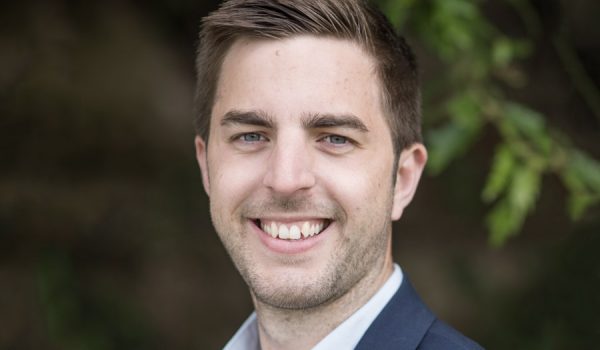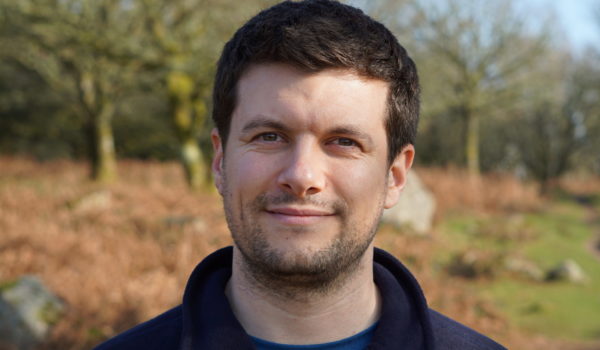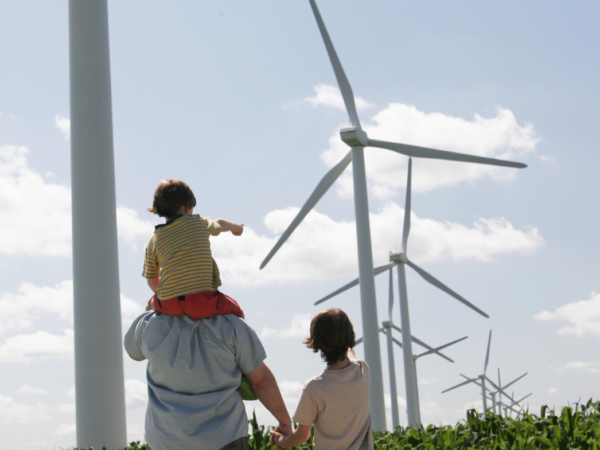Project duration: 2019 – June 2020
Since 2015, Regen has pioneered the Distributed Future Energy Scenarios (DFES) approach to assisting network strategy and planning. Regen has worked with a number of DNOs, including SSEN, to develop detailed local scenario analysis for the future development of distributed energy. The growth potential of network connected energy assets has been examined, including electricity generation technologies, storage and disruptive demand technologies, down to primary and secondary substation areas.
However, for low voltage network investment planning and risk mitigation strategies a more granular forecast is required. To better understand the potential impacts to distribution networks, detailed forecasts of annual Low Carbon Technology (LCT) uptake are required – including EV chargers, heat pumps and rooftop PV. Regen has, therefore, been working with SSEN to produce scenario-based projections of LCT installations to a feeder substation level. The results support SSEN in its ambition to improve its understanding of the impact of electric vehicles and other low carbon technologies on its network.
Estimating the number of these technologies that will connect at a street by street or feeder substation level – of which there are over 520,000 in SSEN’s licence areas – has required high granularity GIS analysis. We have been analysing these technologies in both the domestic and non-domestic setting, resulting in the analysis of nine different electric vehicle charger archetypes. These archetypes include, for example, both on and off-street chargers in a domestic setting and national and local en-route chargers.
In order to analyse a range of future projections, analysis was undertaken for five unique scenarios. These included the four scenarios in National Grid’s 2019 Future Energy Scenarios study: Two Degrees, Community Renewables, Consumer Evolution and Steady Progression. Since the analysis and work behind National Grid’s 2019 study was undertaken, the UK’s climate, energy and transport policy landscape has shifted, with the UK Parliament declaring a climate emergency on 1 May, a 2050 net zero emissions target being passed into law on 27 June, and a ban on new petrol, diesel and hybrid cars being brought forward to 2035. As a result, a fifth scenario was modelled: titled Net Zero.
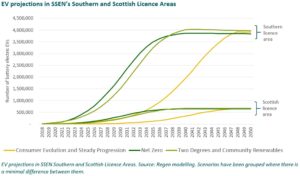
The bespoke Net Zero scenario includes faster take up of electric vehicles in the near-term, and lower total vehicle numbers/miles. It is a scaled-up version of National Grid’s Two Degrees and Community Renewables scenarios, and incorporates the CCC’s recommendations for ‘further ambition’ in their Net Zero technical report, with an estimated 2028 date for when all new cars are electric, 3 years earlier than the FES. In addition, a CCC further ambition recommendation is for a 10% reduction in overall car mileage.
A wide variety of datasets were used to analyse specific regional and local demographic attributes, geographical characteristics and local resources. Knowing the number of different assets that are connected to a feeder substation is classified as a ‘scale factor’, information which must then be qualified with an ‘uptake factor’. For example, if a feeder substation has n number of homes connected to it, how many of those homes have off-street parking and so are suitable to host an off-street EV charger? The graphic below illustrates interim results of the spatial distribution of off-street EV charging.
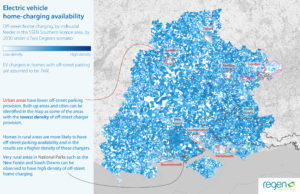
The final report for the project “High granularity projections for low carbon technology uptake – electric vehicle, heat pumps and solar PV” was launched on 22 June 2020 and can be found here.
SSEN will be hosting a webinar to present the methodology and key learnings from the work on 13 July, you can find out more and book your place online here.
To find out more about this project, contact Joel Venn at jvenn@regen.co.uk.

